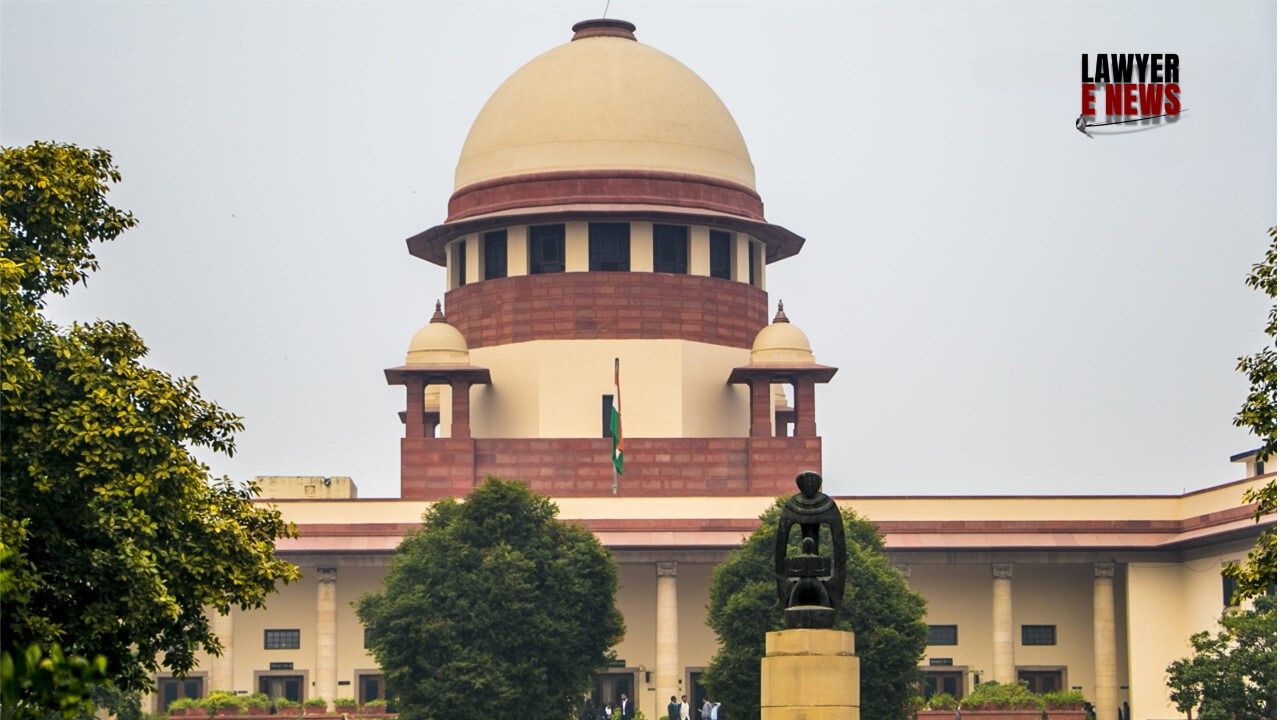-
by Admin
15 February 2026 2:36 AM



Supreme Court Upholds Conviction for Rash and Negligent Driving, Rejects Plea for Leniency, dismissed an appeal challenging the conviction and sentence for rash and negligent driving under Sections 304A and 279 of the Indian Penal Code (IPC). The Court upheld the sentence of six months' simple imprisonment under Section 304A IPC and a fine of ₹1,000 under Section 279 IPC, observing that the petitioner’s rash and negligent driving caused the death of one person and injuries to another.
The judgment, delivered by a bench comprising Justice Sudhanshu Dhulia and Justice Prasanna B. Varale, emphasizes that leniency cannot be extended in cases where reckless driving leads to loss of life and serious injuries.
“Rash and Negligent Conduct Proven Beyond Reasonable Doubt”
The Court noted that evidence on record, including eyewitness testimonies, a spot sketch, and a mechanical inspection (MVI) report, firmly established the petitioner’s guilt. It observed:
“The petitioner’s rash and negligent driving caused the motorcycle to be dragged for over 15 feet, resulting in grievous injuries to the rider, who later succumbed to his injuries. This conduct was neither accidental nor excusable.”
The case stemmed from an accident on October 18, 2009, on NH 206 in Karnataka. The petitioner, driving a Qualis vehicle, collided with a motorcycle from behind. The collision caused the death of Dinesh Kailaje, the motorcycle rider, and injured his son, who was the pillion rider.
The Trial Court, relying on eyewitness testimonies and evidence, convicted the petitioner under Sections 279 (rash driving) and 304A (causing death by negligence) of IPC. The petitioner was sentenced to six months’ simple imprisonment under Section 304A IPC and a fine of ₹1,000 under Section 279 IPC, with a default sentence of one month’s imprisonment.
The petitioner’s appeal before the Fast Track Court at Bhadravathi and a revision petition before the Karnataka High Court were dismissed. Both courts upheld the conviction and sentence, finding no merit in the petitioner’s defense of contributory negligence by the deceased.
The Supreme Court held that the petitioner’s conduct satisfied the elements of rashness and negligence as required under Sections 279 and 304A IPC. It noted:
“The width of the road, being 24 feet, negates the defense of contributory negligence. The petitioner had ample space to pass but still drove in a manner that endangered life.”
The Court emphasized that rash and negligent driving does not merely depend on speed but also on the failure to exercise reasonable care.
The petitioner challenged the reliability of testimonies of PWs 2, 3, and 4, citing contradictions and alleged bias as they were related to the deceased. The Supreme Court rejected this contention, holding:
“Minor contradictions do not render eyewitness testimonies untrustworthy. Their depositions were consistent with the spot sketch and mechanical inspection report.”
The Court observed that PW3, an independent witness, corroborated the sequence of events, including the petitioner’s high speed and reckless driving.
3. Plea of Contributory NegligenceThe petitioner argued that the deceased made a sudden turn without proper signaling, contributing to the accident. However, the Court dismissed this claim, observing:
“The deceased had turned on his indicator light, and the petitioner had enough room to avoid the collision. The act of dragging the motorcycle for 15 feet further indicates rashness on the petitioner’s part.”
The petitioner sought leniency, pleading for conversion of imprisonment into a fine due to personal hardships, including being the sole breadwinner for his family. The Supreme Court declined, stating:
“The petitioner’s actions resulted in the death of one person and injuries to another. Sympathy cannot override justice in such cases.”
The Supreme Court upheld the concurrent findings of the Trial Court, First Appellate Court, and High Court, dismissing the petitioner’s appeal. The Court affirmed
“The petitioner’s conduct was rash and negligent, and no error was found in the lower courts’ conclusion of guilt. The sentence imposed is just and does not warrant interference.”
Date of Judgment: December 20, 2024
